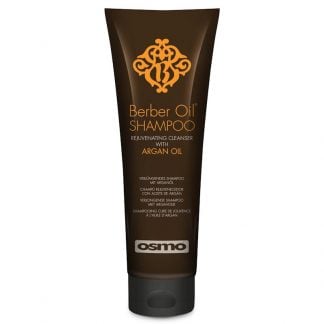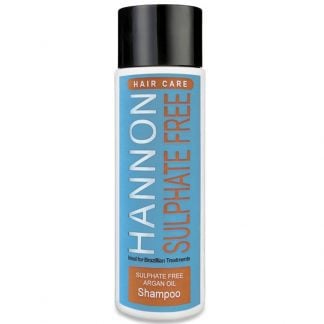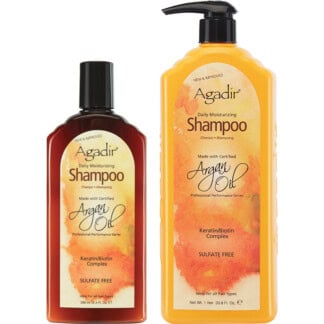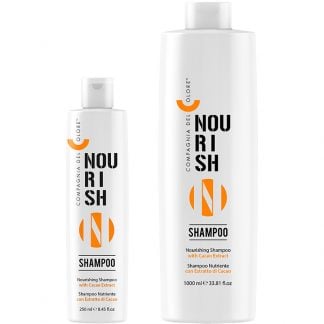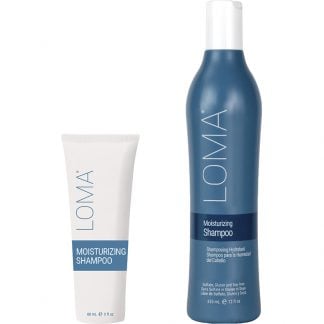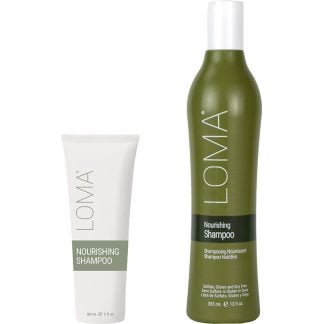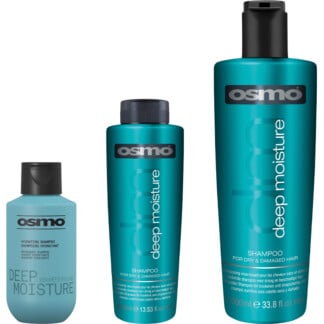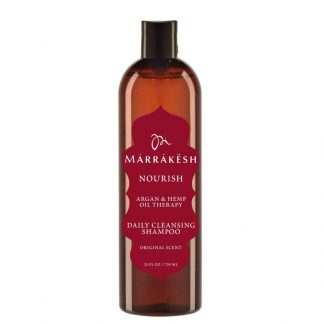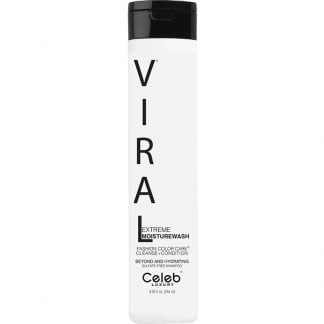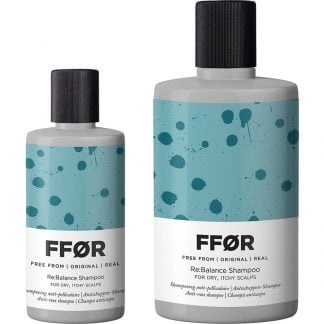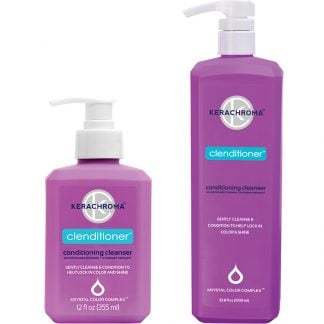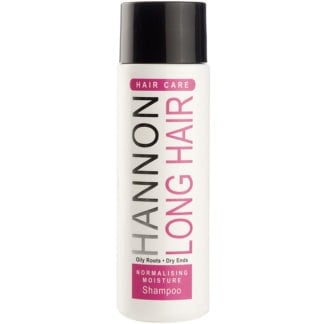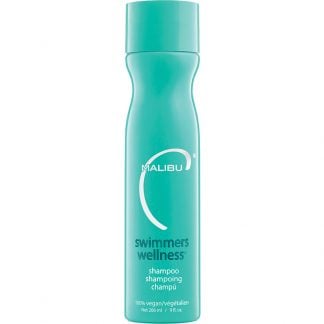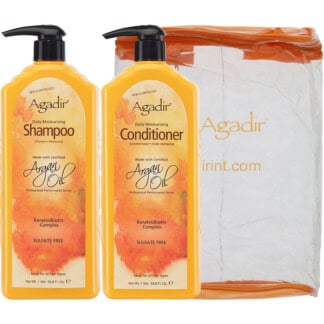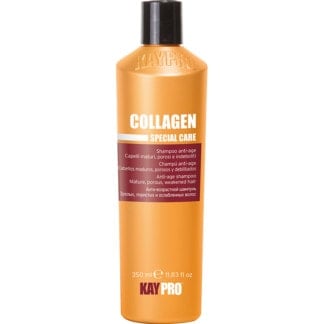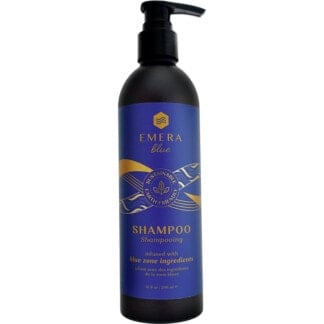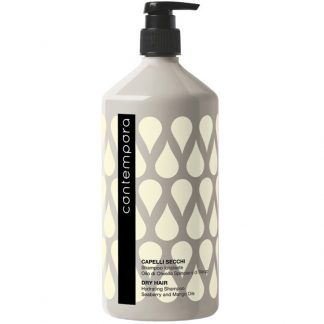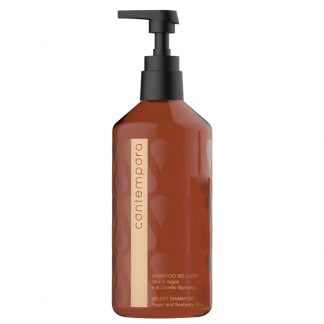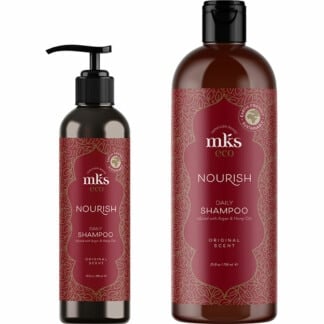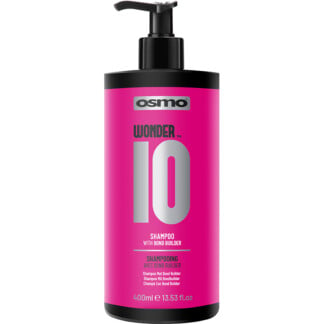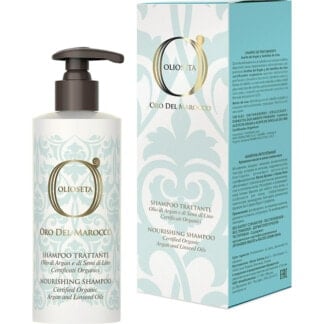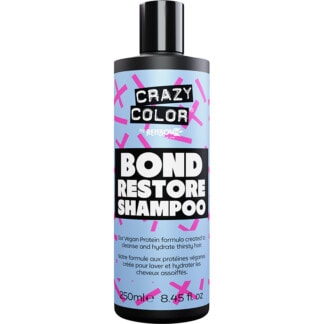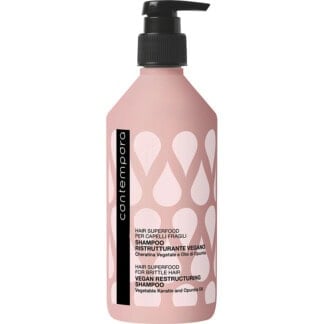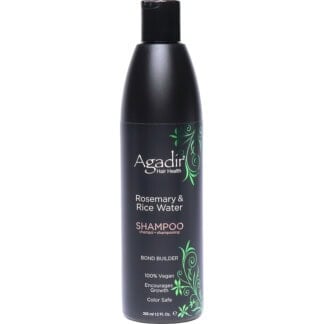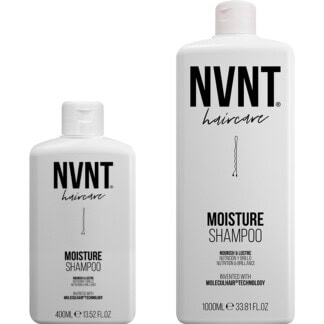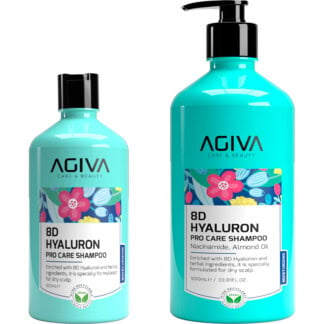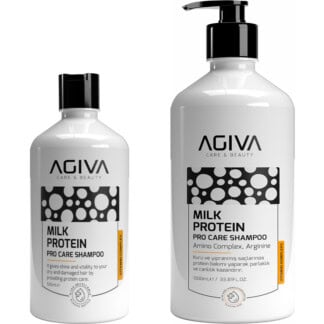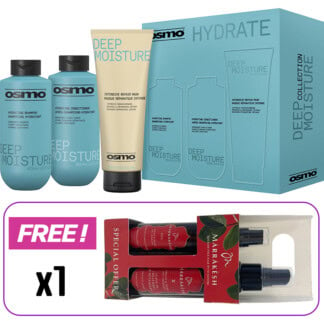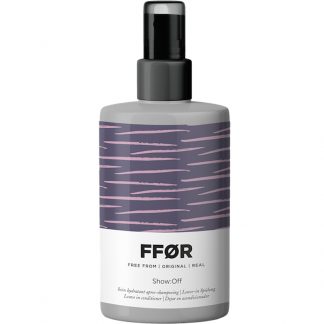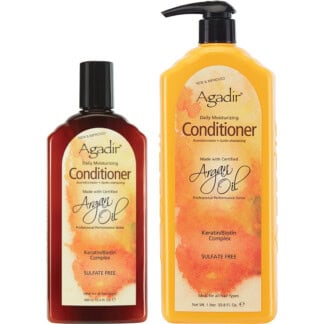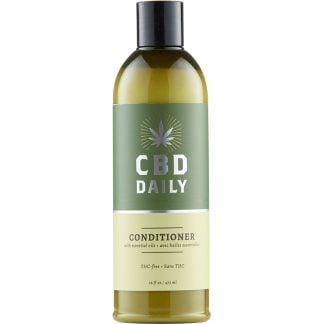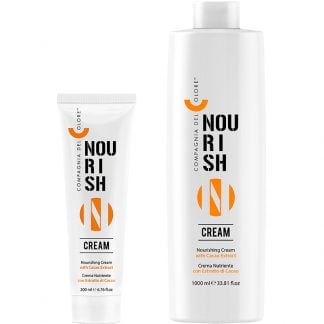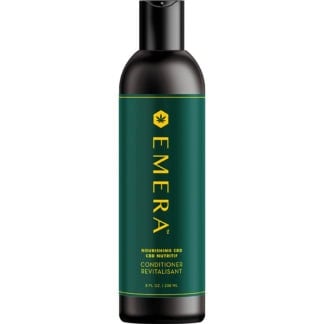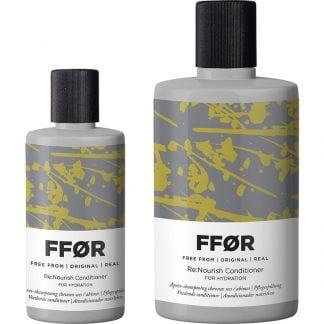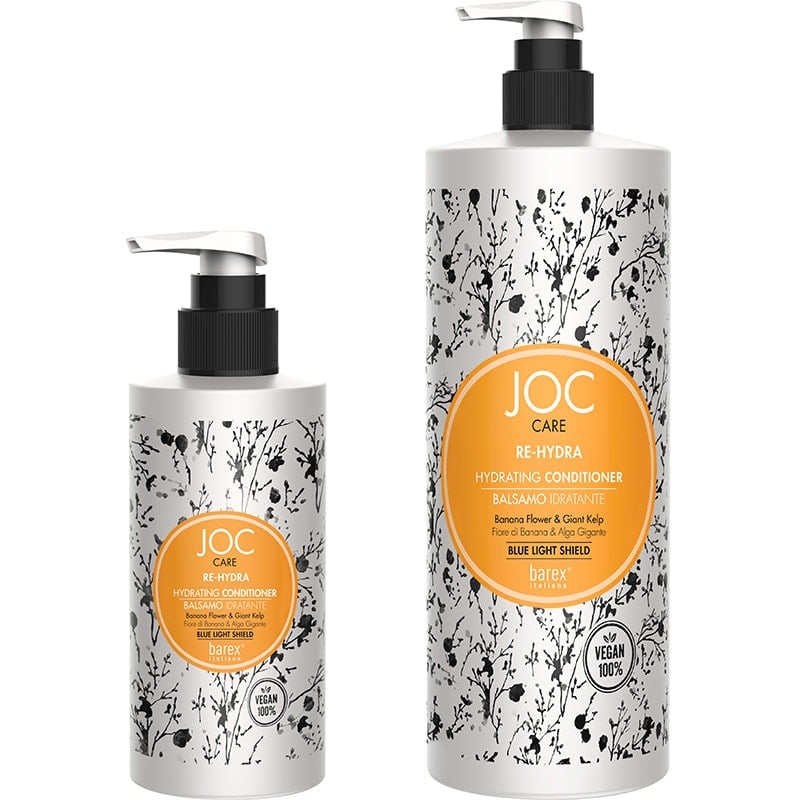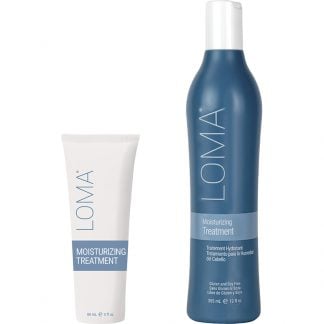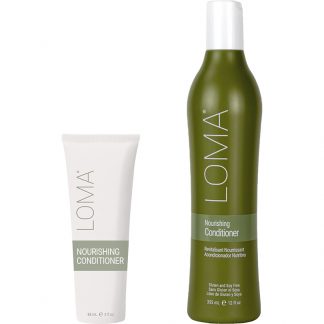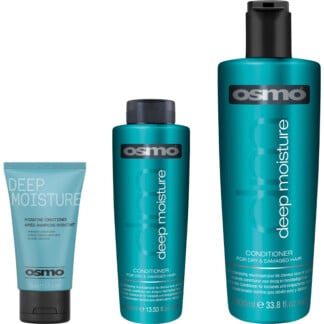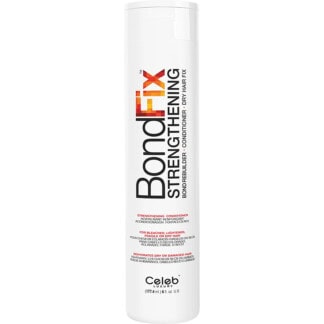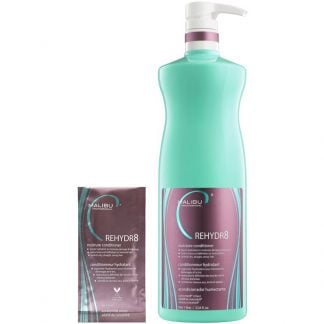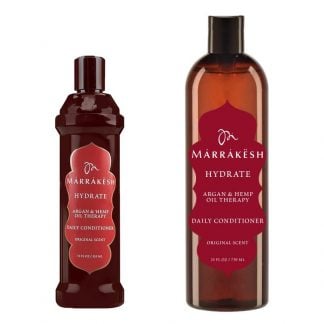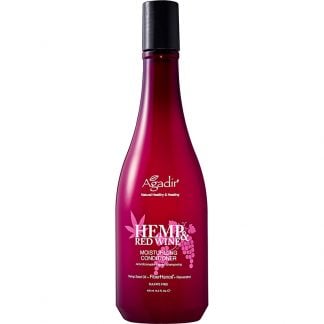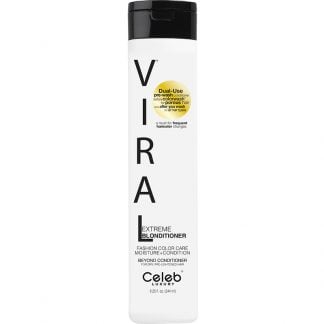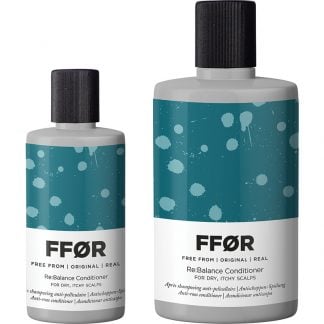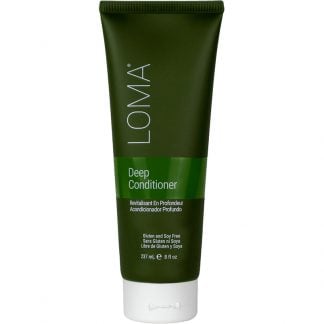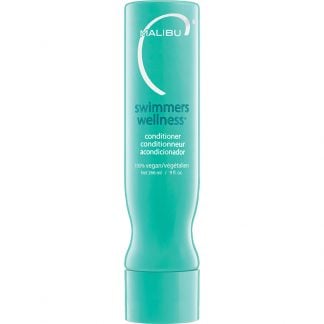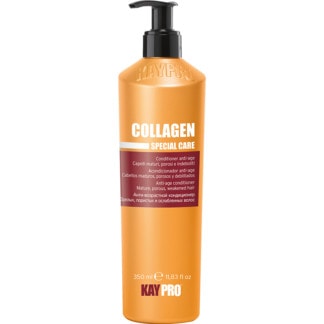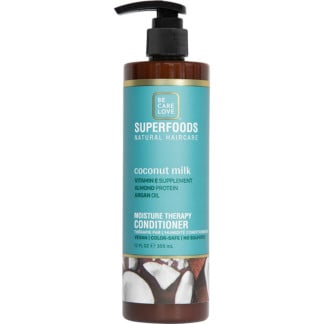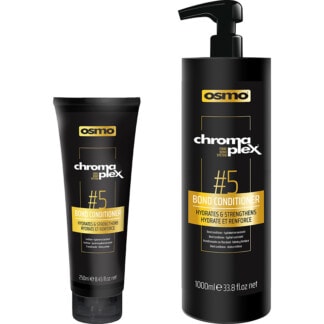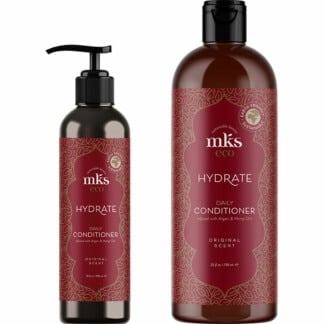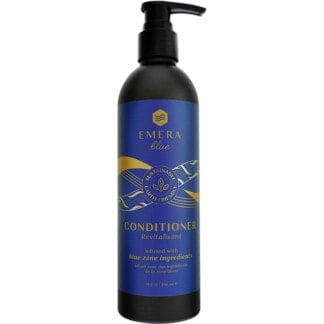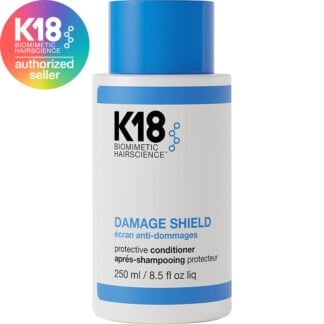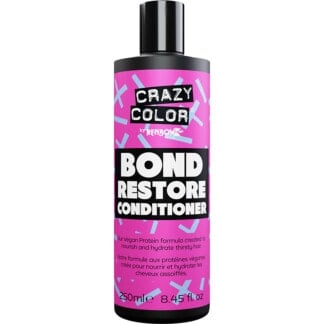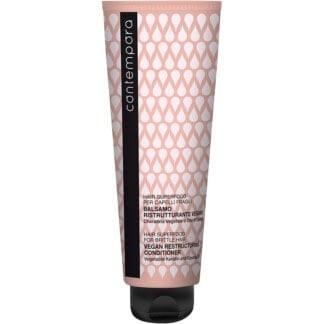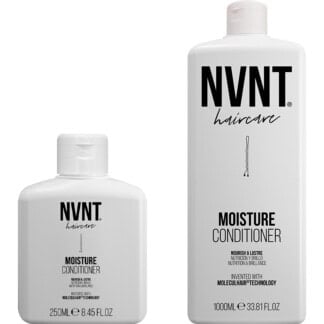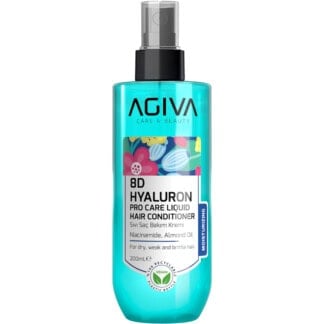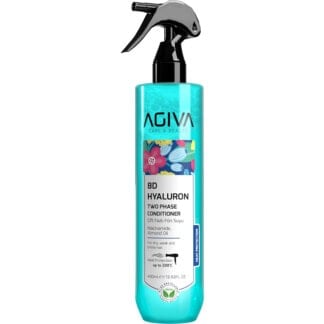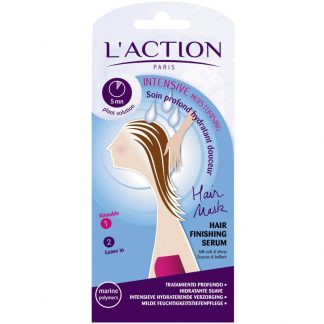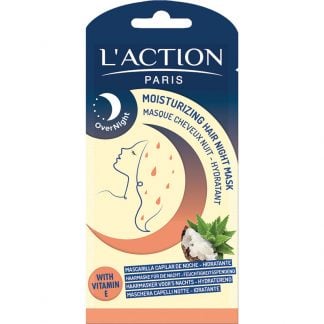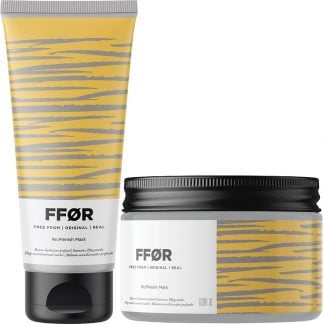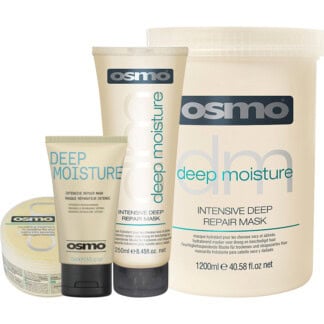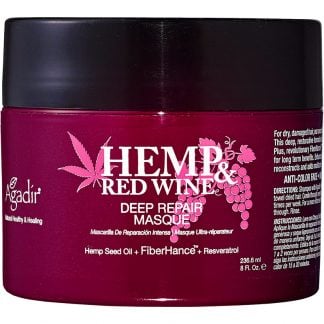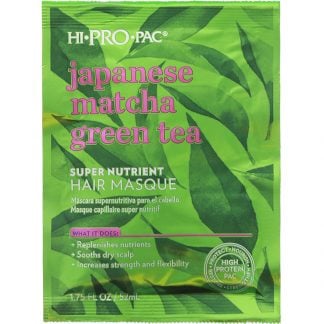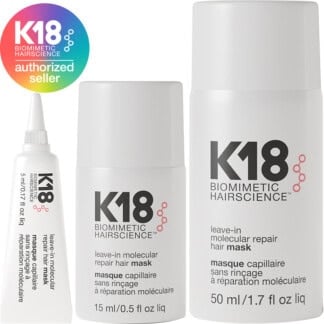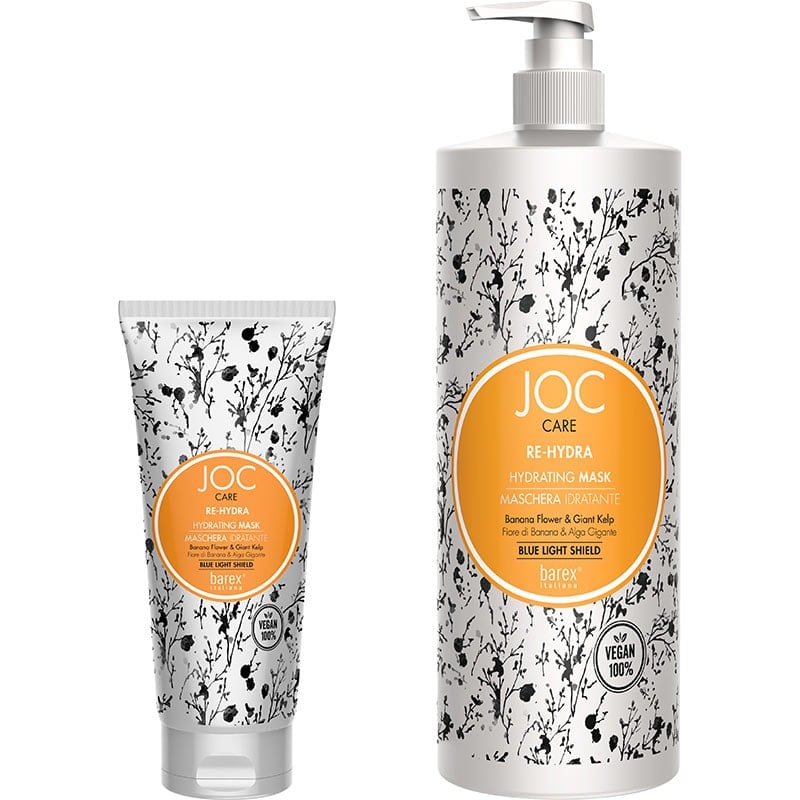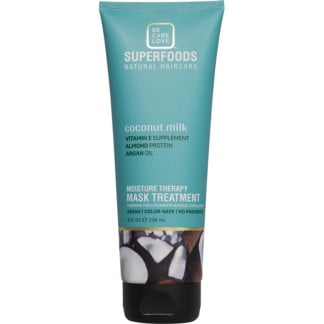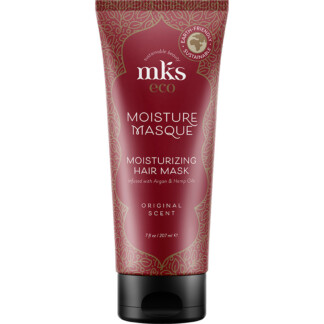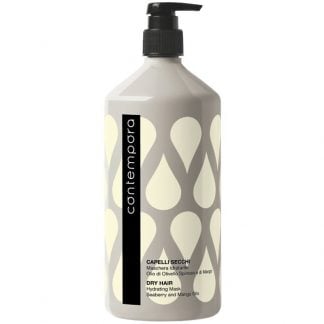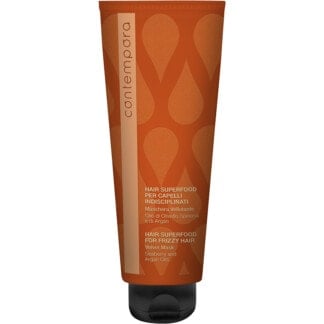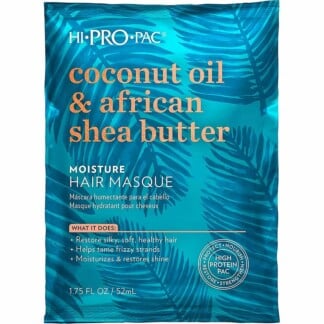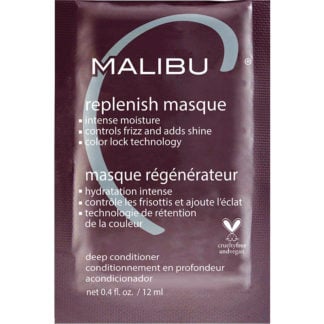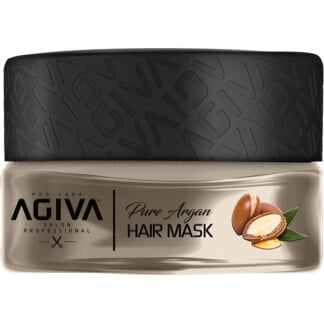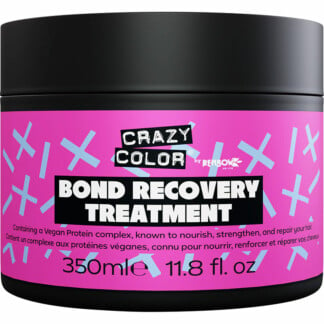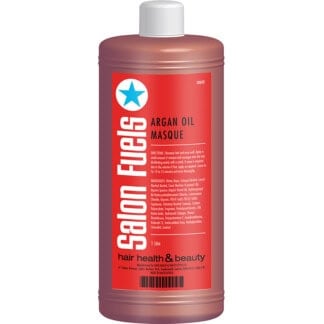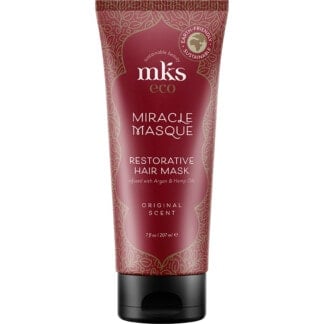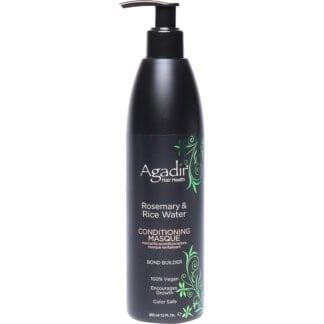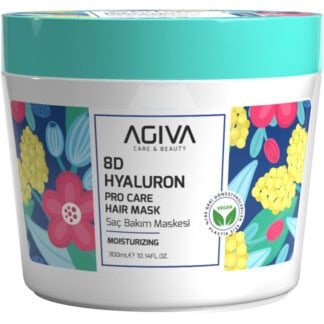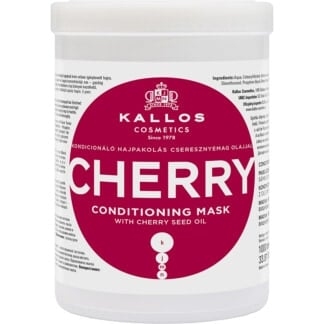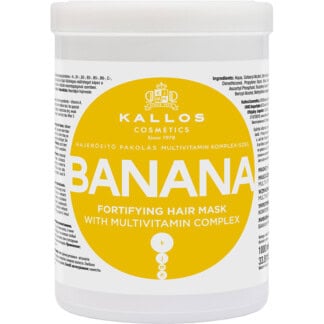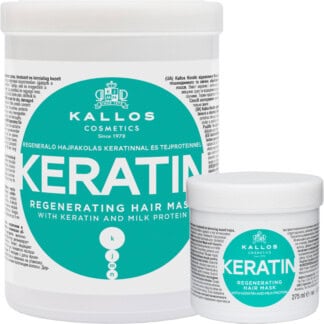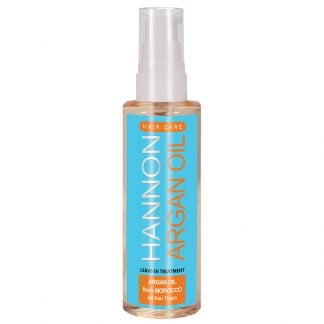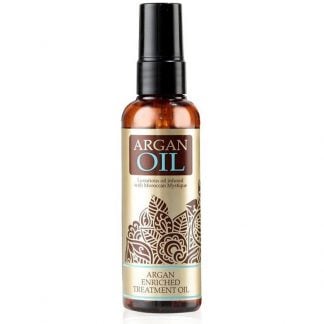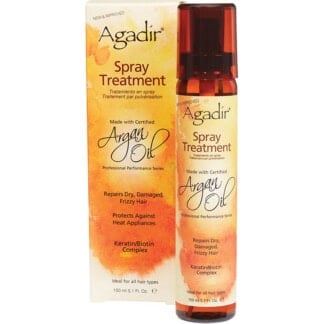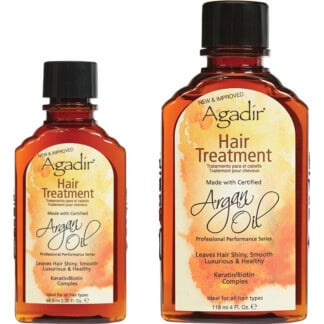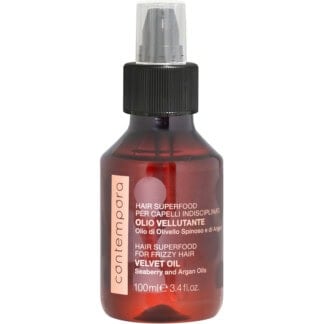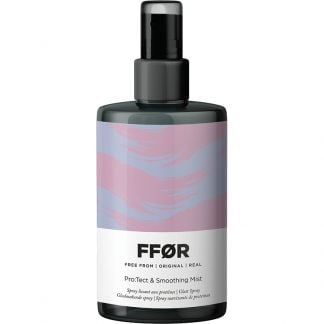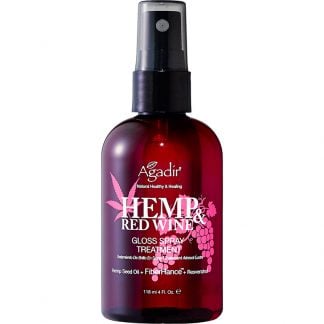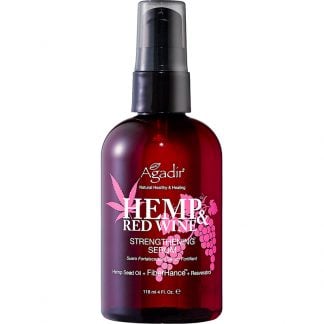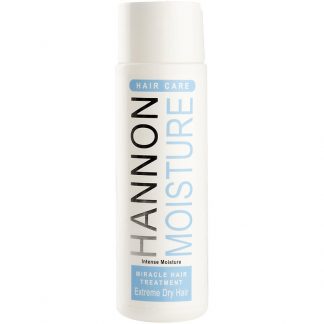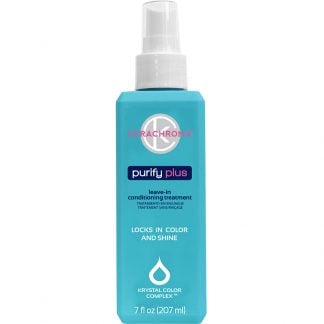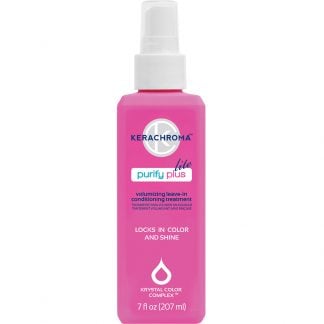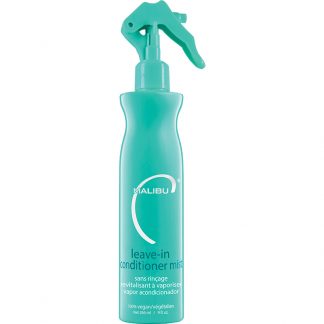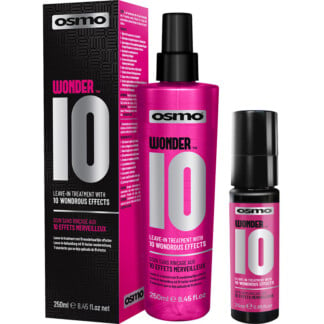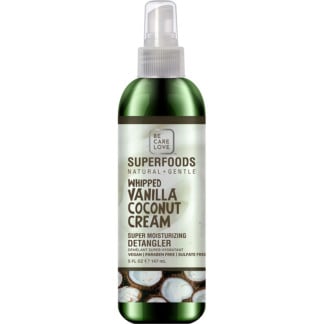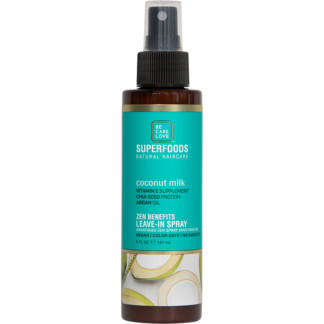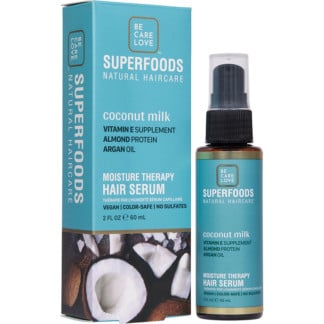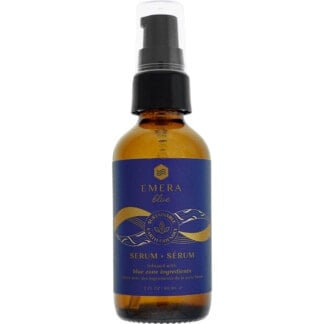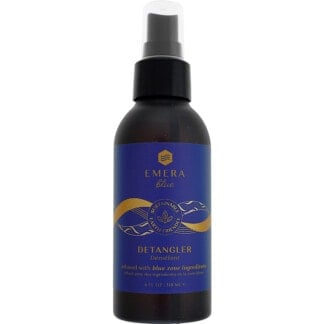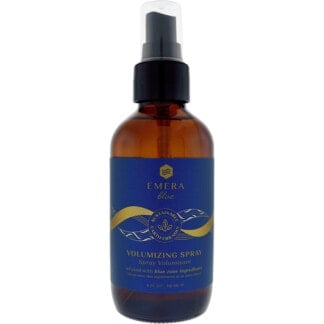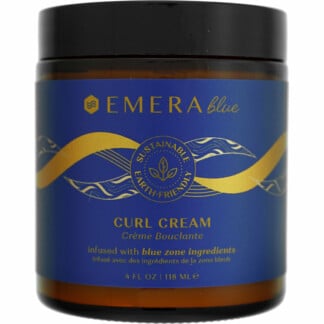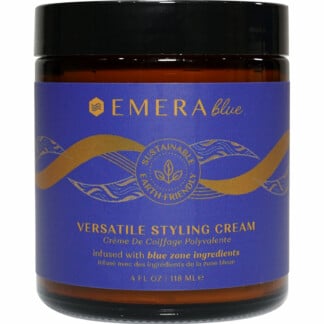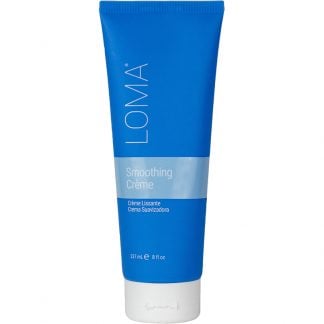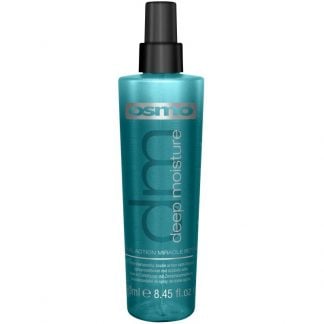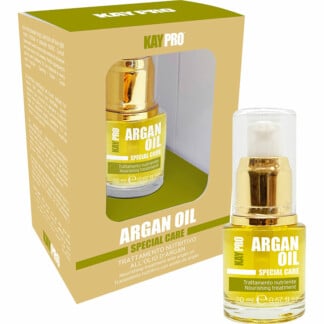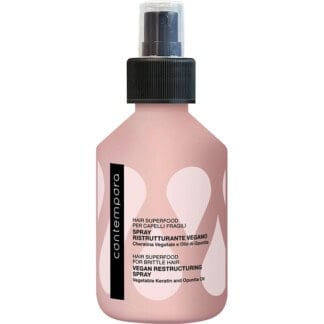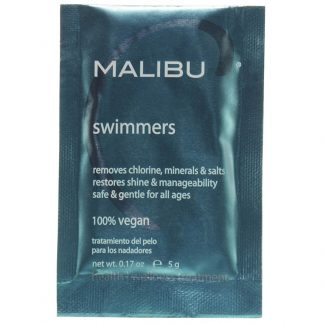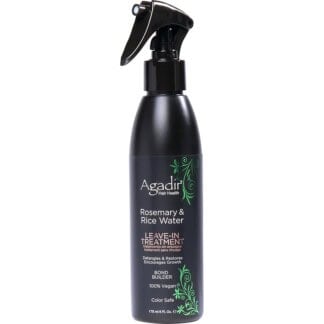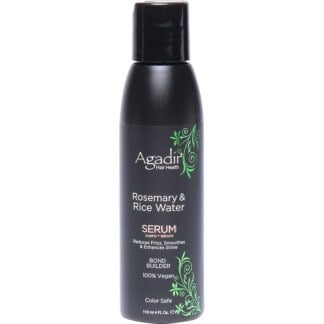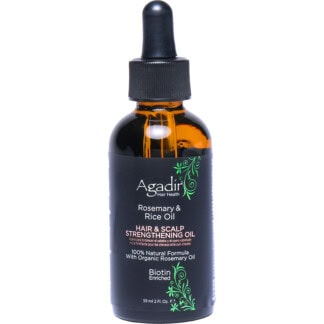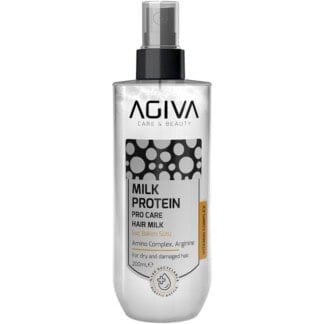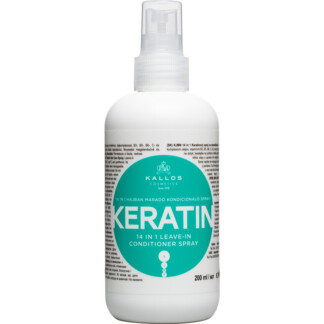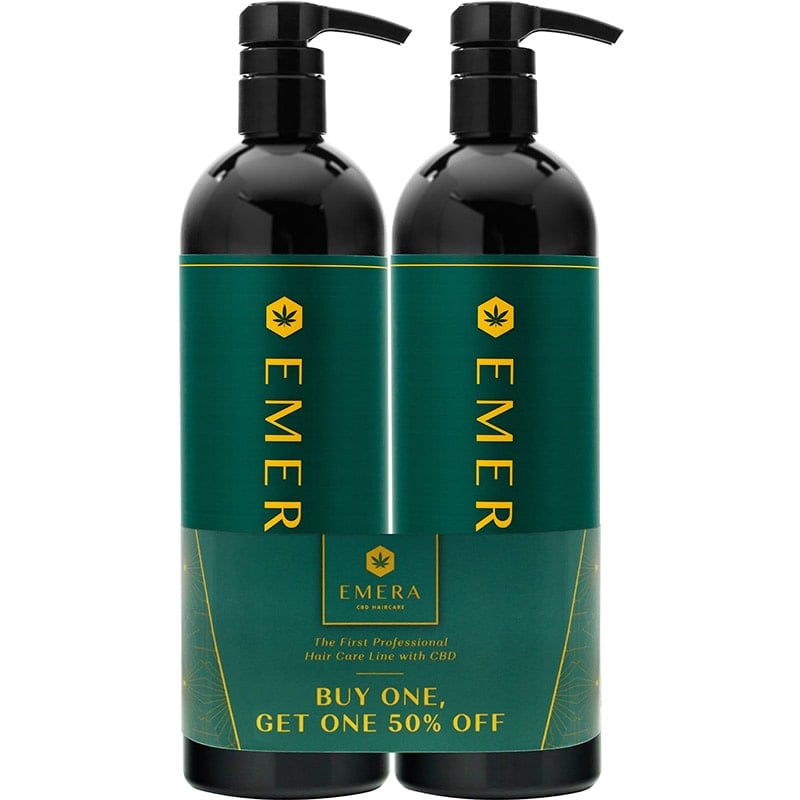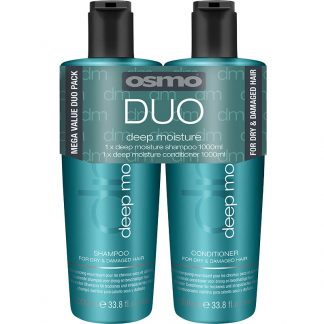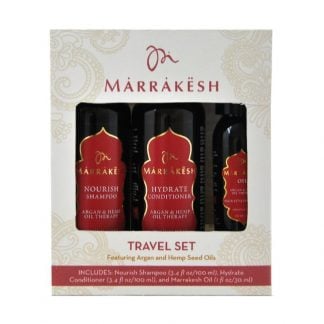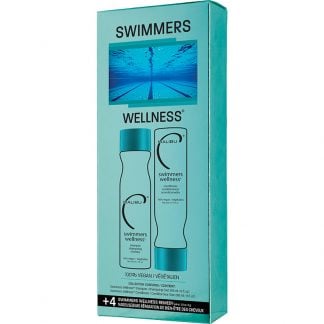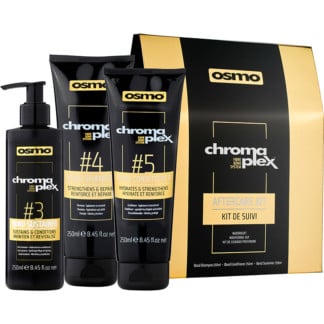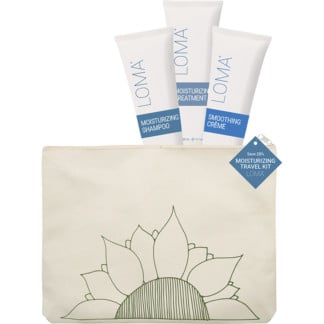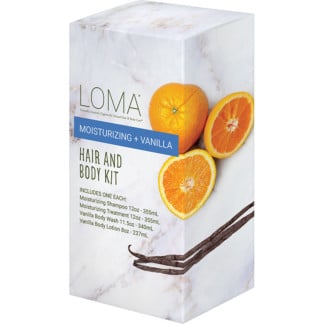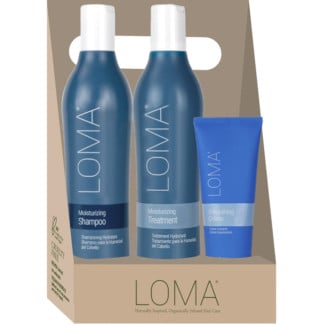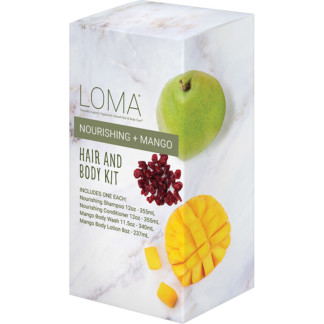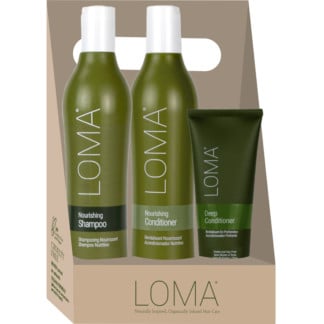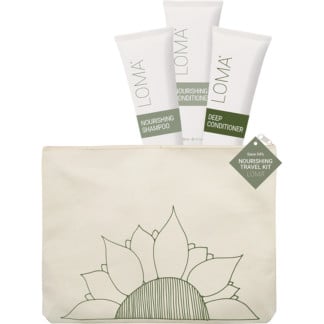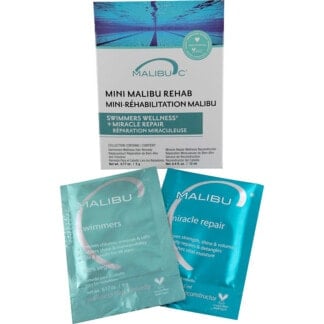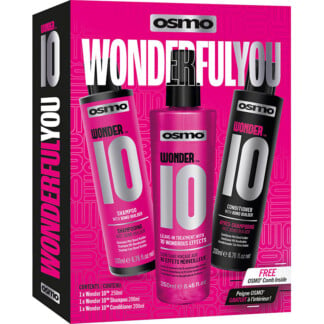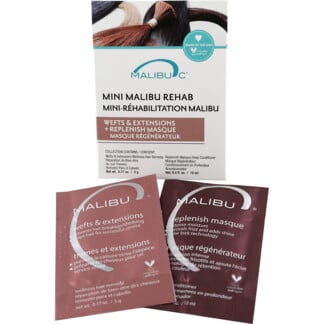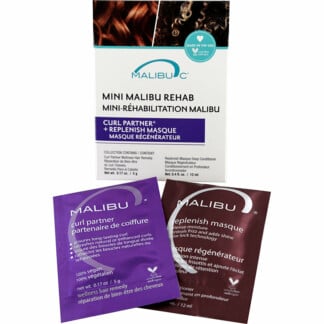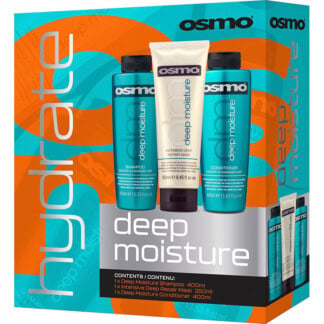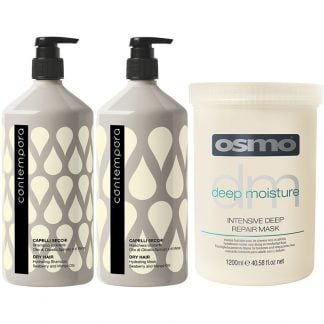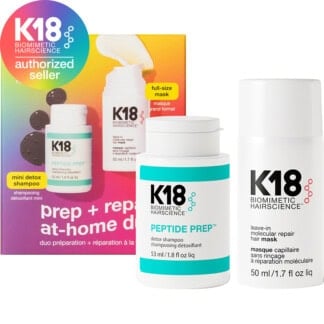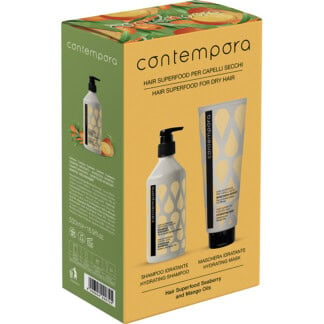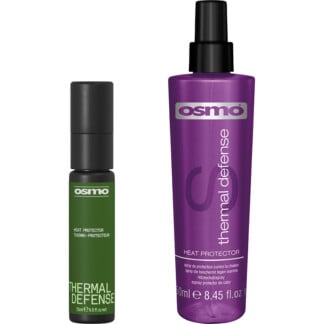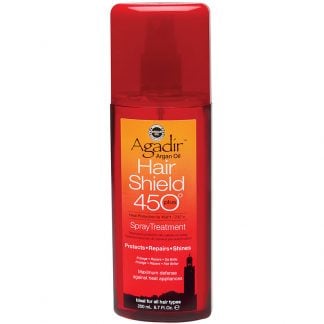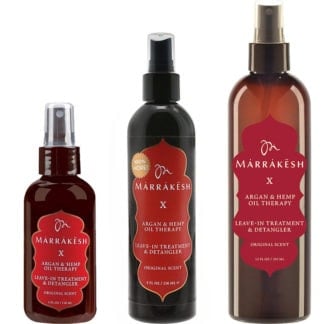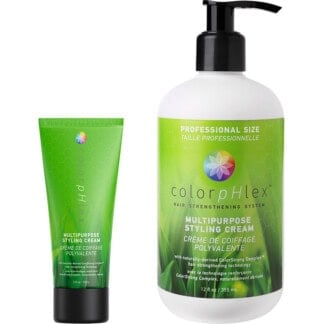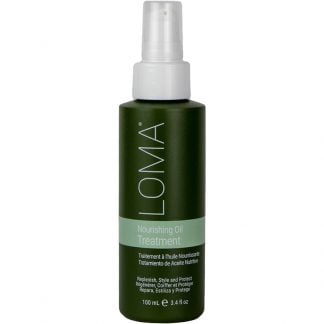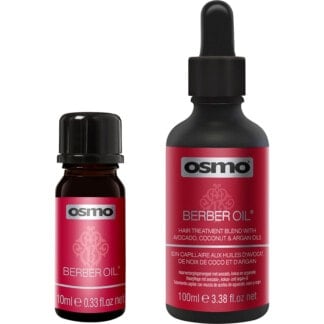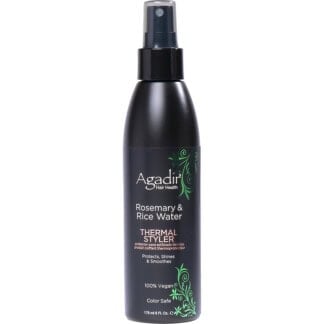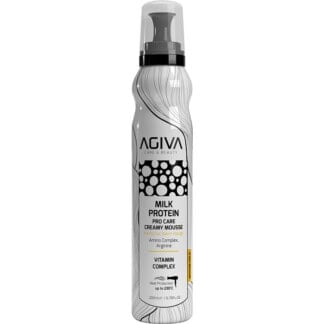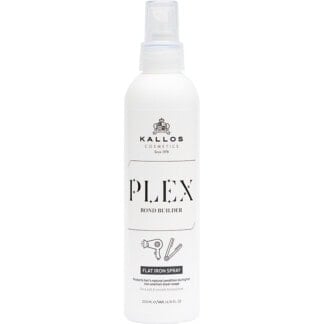
Dry hair leaving you exposed?
Dry hair is one of the most common hair complaints. Dryness can make your hair frazzled, dull and brittle – but with advanced products formulated for dry hair treatment, there’s plenty you can do to combat it.
Best dry hair treatments/products
Hairhouse Warehouse stocks the widest selection of salon-grade products in South Africa, including the best dry hair products and treatments on the market. For the best possible results, we recommend a four-step process.
For in-depth information about what causes dry hair, see our dry hair FAQ below.
Shampoos for dry hair
Step 1 is to use a dry hair shampoo. The best shampoo for dry hair cleanses gently, without harsh chemicals or irritants. It also starts the process of replenishing moisture to create a healthy moisture balance. Start with a hydrating shampoo to instantly inject moisture to dehydrated hair.
-
OSMO Berber Oil Shampoo, 250ml
Rated 0 out of 5R112.50 incl. VAT Add to cart -
Hannon Argan Oil Sulphate Free Shampoo, 250ml
Rated 0 out of 5R285.00 incl. VAT Add to cart -
Agadir Argan Oil Daily Moisturizing Shampoo
Rated 4.87 out of 5R375.00 – R892.50 incl. VAT Select options This product has multiple variants. The options may be chosen on the product page -
CDC Daily Care Nourish Shampoo
Rated 0 out of 5R136.83 – R287.15 incl. VAT Select options This product has multiple variants. The options may be chosen on the product page -
FFØR Re:Nourish for Hydration Shampoo
Rated 5.00 out of 5R169.66 – R333.77 incl. VAT Select options This product has multiple variants. The options may be chosen on the product page -
JOC Care Re-Hydra Hydrating Shampoo
Rated 4.80 out of 5R215.90 – R376.87 incl. VAT Select options This product has multiple variants. The options may be chosen on the product page -
LOMA Moisturizing Shampoo
Rated 5.00 out of 5R147.70 – R348.15 incl. VAT Select options This product has multiple variants. The options may be chosen on the product page -
LOMA Nourishing Shampoo
Rated 0 out of 5R157.20 – R526.70 incl. VAT Select options This product has multiple variants. The options may be chosen on the product page -
OSMO Deep Moisture Shampoo
Rated 4.86 out of 5R97.62 – R491.81 incl. VAT Select options This product has multiple variants. The options may be chosen on the product page -
Marrakesh Daily Nourish Cleansing Shampoo, 739ml
Rated 0 out of 5R347.10 incl. VAT Add to cart -
Celeb Luxury Viral Extreme Clear Moisturewash, 244ml
Rated 5.00 out of 5R309.25 incl. VAT Add to cart -
FFØR Re:Balance for Dry & Itchy Scalps Shampoo
Rated 4.50 out of 5R169.27 – R342.06 incl. VAT Select options This product has multiple variants. The options may be chosen on the product page -
Kerachroma Clenditioner Conditioning Cleanser
Rated 0 out of 5R318.65 – R646.18 incl. VAT Select options This product has multiple variants. The options may be chosen on the product page -
Hannon Moisture Balance Normalising Moisture Shampoo, 250ml
Rated 5.00 out of 5R237.00 incl. VAT Out of stock -
Malibu C Swimmers Wellness Shampoo, 266ml
Rated 5.00 out of 5R377.33 incl. VAT Add to cart -
Agadir Argan Oil Daily Moisturizing 1 Litre Shampoo & Conditioner Banded Pack
Rated 4.60 out of 5R1,942.50 incl. VAT Out of stock -
KAYPRO Collagen Shampoo for Mature/Porous/Weak Hair, 350ml
Rated 5.00 out of 5R214.24 incl. VAT Add to cart -
Be Care Love SuperFoods Moisture Therapy Shampoo, 355ml
Rated 0 out of 5R458.95 incl. VAT Add to cart -
OSMO Chromaplex #4 Bond Shampoo
Rated 4.67 out of 5R321.52 – R1,151.89 incl. VAT Select options This product has multiple variants. The options may be chosen on the product page -
EMERA BLUE Shampoo, 296ml
Rated 4.63 out of 5R305.00 incl. VAT Add to cart -
Contempora Dry Hair Hydrating Shampoo, 1 Litre
Rated 5.00 out of 5R261.10 incl. VAT Add to cart -
Contempora Frizzy Hair Argan & Seaberry Velvet Shampoo, 500ml
Rated 5.00 out of 5R224.42 incl. VAT Add to cart -
MKS eco Nourish Daily Cleansing Shampoo
Rated 5.00 out of 5R299.00 – R428.00 incl. VAT Select options This product has multiple variants. The options may be chosen on the product page -
OSMO Wonder 10 Shampoo with Bond Builder, 400ml
Rated 5.00 out of 5R430.40 incl. VAT Add to cart -
Olioseta Oro Del Marocco Nourishing Shampoo, 250ml
Rated 0 out of 5R307.42 incl. VAT Add to cart -
Crazy Color Bond Restore Shampoo, 250ml
Rated 0 out of 5R291.91 incl. VAT Add to cart -
Contempora Hair Superfood for Brittle Hair Vegan Restructuring Shampoo, 500ml
Rated 5.00 out of 5R259.66 incl. VAT Add to cart -
Agadir Rosemary & Rice Water Shampoo, 355ml
Rated 0 out of 5R637.50 incl. VAT Add to cart -
NVNT Moisture Shampoo
Rated 0 out of 5R464.35 – R812.62 incl. VAT Select options This product has multiple variants. The options may be chosen on the product page -
Agiva 8D Hyaluron Pro Care Shampoo for Dry, Weak & Brittle Hair & Scalp
Rated 5.00 out of 5R180.00 – R262.50 incl. VAT Select options This product has multiple variants. The options may be chosen on the product page -
Agiva Milk Protein Pro Care Shampoo for Dry & Damaged Hair
Rated 5.00 out of 5R157.50 – R262.50 incl. VAT Select options This product has multiple variants. The options may be chosen on the product page -
NEW
OSMO Deep Moisture Collection Gift Pack, 3 Pieces
Rated 0 out of 5R501.01 incl. VAT Add to cart
Conditioners for dry hair
Step 2 is to use a specially formulated dry hair conditioner. The best conditioner for dry damaged hair hydrates, repairs and protects the hair cuticles. A loss of moisture in the hair can be attributed to open cuticles. Closing these cuticles preserves moisture, and these conditioners pack more moisture to starved hair.
-
FFØR Show:Off Leave-In Conditioner, 250ml
Rated 0 out of 5R378.71 incl. VAT Add to cart -
Agadir Argan Oil Daily Moisturizing Conditioner
Rated 4.55 out of 5R375.00 – R892.50 incl. VAT Select options This product has multiple variants. The options may be chosen on the product page -
CBD Daily Conditioner, 473ml
Rated 0 out of 5R315.45 incl. VAT Add to cart -
CDC Daily Care Nourish Cream Conditioner
Rated 4.00 out of 5R145.81 – R314.04 incl. VAT Select options This product has multiple variants. The options may be chosen on the product page -
EMERA Nourishing CBD Conditioner, 236ml
Rated 0 out of 5R284.85 incl. VAT Add to cart -
FFØR Re:Nourish for Hydration Conditioner
Rated 0 out of 5R192.28 – R297.35 incl. VAT Select options This product has multiple variants. The options may be chosen on the product page -
JOC Care Re-Hydra Hydrating Conditioner
Rated 5.00 out of 5R272.11 – R434.80 incl. VAT Select options This product has multiple variants. The options may be chosen on the product page -
LOMA Moisturizing Treatment
Rated 5.00 out of 5R157.20 – R385.10 incl. VAT Select options This product has multiple variants. The options may be chosen on the product page -
LOMA Nourishing Conditioner
Rated 0 out of 5R166.70 – R576.12 incl. VAT Select options This product has multiple variants. The options may be chosen on the product page -
OSMO Deep Moisture Conditioner
Rated 5.00 out of 5R97.62 – R609.47 incl. VAT Select options This product has multiple variants. The options may be chosen on the product page -
Celeb Luxury BondFix Strengthening Conditioner, 177.4ml
Rated 0 out of 5R309.01 incl. VAT Add to cart -
Malibu C REHYDR8 Moisture Conditioner
Rated 5.00 out of 5R52.00 – R1,139.54 incl. VAT Select options This product has multiple variants. The options may be chosen on the product page -
Marrakesh Daily Hydrate Conditioner
Rated 4.00 out of 5R288.05 – R295.00 incl. VAT Select options This product has multiple variants. The options may be chosen on the product page -
Agadir Hemp & Red Wine Moisturizing Conditioner, 430ml
Rated 0 out of 5R311.25 incl. VAT Add to cart -
Celeb Luxury Viral Extreme Dual-Use Blonditioner, 244ml
Rated 0 out of 5R309.01 incl. VAT Add to cart -
FFØR Re:Balance for Dry & Itchy Scalps Conditioner
Rated 5.00 out of 5R164.60 – R297.35 incl. VAT Select options This product has multiple variants. The options may be chosen on the product page -
LOMA Deep Conditioner, 237ml
Rated 0 out of 5R585.00 incl. VAT Add to cart -
Malibu C Swimmers Wellness Conditioner, 266ml
Rated 5.00 out of 5R258.50 incl. VAT Add to cart -
KAYPRO Collagen Conditioner for Mature/Porous/Weak Hair, 350ml
Rated 5.00 out of 5R248.45 incl. VAT Add to cart -
Be Care Love SuperFoods Moisture Therapy Conditioner, 355ml
Rated 0 out of 5R458.95 incl. VAT Add to cart -
OSMO Chromaplex #5 Bond Conditioner
Rated 5.00 out of 5R398.04 – R1,441.05 incl. VAT Select options This product has multiple variants. The options may be chosen on the product page -
MKS eco Hydrate Daily Conditioner
Rated 0 out of 5R339.94 – R484.69 incl. VAT Select options This product has multiple variants. The options may be chosen on the product page -
EMERA BLUE Conditioner, 296ml
Rated 4.63 out of 5R305.00 incl. VAT Add to cart -
OSMO Wonder 10 Conditioner with Bond Builder, 400ml
Rated 5.00 out of 5R413.19 incl. VAT Out of stock -
K18 Damage Shield Protective Conditioner, 250ml
Rated 4.60 out of 5R609.82 incl. VAT Add to cart -
Crazy Color Bond Restore Conditioner, 250ml
Rated 0 out of 5R291.91 incl. VAT Add to cart -
Contempora Hair Superfood for Brittle Hair Vegan Restructuring Conditioner, 400ml
Rated 5.00 out of 5R208.50 incl. VAT Add to cart -
NVNT Moisture Conditioner
Rated 0 out of 5R507.86 – R812.62 incl. VAT Select options This product has multiple variants. The options may be chosen on the product page -
Agiva 8D Hyaluron Pro Care Liquid Hair Conditioner for Dry, Weak & Brittle Hair, 200ml
Rated 0 out of 5R157.50 incl. VAT Add to cart -
Agiva 8D Hyaluron Two Phase Conditioner & Heat Protection for Dry, Weak & Brittle Hair, 400ml
Rated 5.00 out of 5R240.00 incl. VAT Out of stock
Masks for dry hair
Step 3 is deep conditioning. Experts agree that it’s best to use a high-quality dry hair mask at least once a week – more if hair is very dry. Not all dry hair products are created equal though. The best hair mask for dry hair is scientifically formulated to penetrate, nourish and repair damaged hair cuticles. These masks also prevent future moisture loss, helping to preserve moisture in the hair.
-
L’Action Paris Intensive Moisturising Hair Mask, 15ml
Rated 5.00 out of 5R28.94 incl. VAT Out of stock -
L’Action Paris Moisturizing Hair Night Mask, 20ml
Rated 0 out of 5R59.10 incl. VAT Add to cart -
FFØR Re:Plenish Deep Conditioning Mask
Rated 0 out of 5R331.50 – R552.30 incl. VAT Select options This product has multiple variants. The options may be chosen on the product page -
OSMO Deep Moisture Intensive Deep Repair Mask
Rated 4.79 out of 5R97.50 – R459.96 incl. VAT Select options This product has multiple variants. The options may be chosen on the product page -
Agadir Hemp & Red Wine Deep Repair Masque, 236.6ml
Rated 5.00 out of 5R486.79 incl. VAT Add to cart -
Hi Pro Pac Japanese Matcha Green Tea Super Nutrient Hair Masque, 52ml
Rated 0 out of 5R65.87 incl. VAT Add to cart -
K18 Leave-In Molecular Repair Hair Mask
Rated 4.78 out of 5R146.99 – R1,090.05 incl. VAT Select options This product has multiple variants. The options may be chosen on the product page -
JOC Care Re-Hydra Hydrating Mask
Rated 5.00 out of 5R254.29 – R548.67 incl. VAT Select options This product has multiple variants. The options may be chosen on the product page -
Be Care Love SuperFoods Moisture Therapy Mask Treatment, 236ml
Rated 0 out of 5R435.00 incl. VAT Add to cart -
MKS eco Moisture Masque Moisturizing Hair Mask, 207ml
Rated 0 out of 5R425.00 incl. VAT Add to cart -
Contempora Dry Hair Hydrating Mask, 1 Litre
Rated 5.00 out of 5R352.07 incl. VAT Add to cart -
Contempora Frizzy Hair Argan & Seaberry Velvet Mask, 350ml
Rated 5.00 out of 5R204.73 incl. VAT Add to cart -
Hi Pro Pac Coconut Oil & African Shea Butter Moisture Hair Masque, 52ml
Rated 5.00 out of 5R69.00 incl. VAT Add to cart -
Malibu C Replenish Masque Treatment Sachet, 12ml
Rated 5.00 out of 5R68.24 incl. VAT Add to cart -
Agiva Pure Argan Hair Mask, 350ml
Rated 5.00 out of 5R188.36 incl. VAT Add to cart -
Crazy Color Bond Recovery Treatment, 350ml
Rated 0 out of 5R421.01 incl. VAT Add to cart -
Salon Fuels Argan Oil Masque, 1 Litre
Rated 5.00 out of 5R330.00 incl. VAT Add to cart -
MKS eco Miracle Masque Restorative Hair Mask, 207ml
Rated 0 out of 5R399.00 incl. VAT Add to cart -
Agadir Rosemary & Rice Water Conditioning Masque, 355ml
Rated 4.00 out of 5R645.00 incl. VAT Add to cart -
Agiva 8D Hyaluron Pro Care Hair Mask for Dry, Weak & Brittle Hair, 300ml
Rated 5.00 out of 5R240.00 incl. VAT Add to cart -
Kallos Cherry Conditioning Hair Mask with Cherry Seed Oil, 1 Litre
Rated 5.00 out of 5R217.50 incl. VAT Add to cart -
Kallos Banana Fortifying Hair Mask with Multivitamin Complex, 1 Litre
Rated 5.00 out of 5R217.50 incl. VAT Add to cart -
Kallos Keratin Regenerating Hair Mask with Keratin & Milk Protein
Rated 4.00 out of 5R112.50 – R217.50 incl. VAT Select options This product has multiple variants. The options may be chosen on the product page
Oils, treatments and finishers for dry hair
Step 4 is to seal in the moisture, using a dry hair oil or treatment. The best hair oil or treatment for dry hair is high in natural oils that protect against moisture loss and damage, but doesn’t weigh down your hair. Great for using when needed or throughout the day when you feel you need it.
-
Hannon Argan Oil Leave-In Treatment, 60ml
Rated 5.00 out of 5R264.99 incl. VAT Out of stock -
Truzone Argan Oil, 100ml
Rated 4.00 out of 5R348.47 incl. VAT Out of stock -
Agadir Argan Oil Spray Treatment, 150ml
Rated 4.88 out of 5R578.17 incl. VAT Out of stock -
Agadir Argan Oil Hair Treatment
Rated 4.90 out of 5R514.38 – R818.86 incl. VAT Select options This product has multiple variants. The options may be chosen on the product page -
Contempora Frizzy Hair Argan & Seaberry Velvet Oil, 100ml
Rated 4.60 out of 5R354.02 incl. VAT Add to cart -
FFØR Pro:Tect & Smoothing Mist Spray, 250ml
Rated 5.00 out of 5R375.32 incl. VAT Add to cart -
Agadir Hemp & Red Wine Gloss Spray Treatment, 118ml
Rated 5.00 out of 5R425.00 incl. VAT Add to cart -
Agadir Hemp & Red Wine Strengthening Serum, 118ml
Rated 0 out of 5R458.95 incl. VAT Add to cart -
Hannon Miracle Hair Treatment for Dry & Brittle Hair, 250ml
Rated 4.50 out of 5R412.53 incl. VAT Add to cart -
Kerachroma Purify Plus Leave-In Conditioning Treatment, 207ml
Rated 0 out of 5R318.65 incl. VAT Add to cart -
Kerachroma Purify Plus Lite Leave-In Conditioning Treatment, 207ml
Rated 0 out of 5R318.65 incl. VAT Add to cart -
Malibu C Leave-In Conditioner Mist, 266ml
Rated 5.00 out of 5R424.47 incl. VAT Add to cart -
OSMO Wonder 10 Leave-In Treatment
Rated 4.62 out of 5R101.71 – R385.49 incl. VAT Select options This product has multiple variants. The options may be chosen on the product page -
Be Care Love SuperFoods Natural & Gentle Whipped Vanilla Coconut Cream Super Moisturizing Detangler, 147ml
Rated 0 out of 5R458.95 incl. VAT Add to cart -
Be Care Love SuperFoods Zen Benefits Leave-In Spray, 147ml
Rated 0 out of 5R458.95 incl. VAT Add to cart -
Be Care Love SuperFoods Moisture Therapy Serum, 60ml
Rated 0 out of 5R435.00 incl. VAT Add to cart -
EMERA BLUE Serum, 60ml
Rated 4.75 out of 5R399.00 incl. VAT Add to cart -
EMERA BLUE Detangler, 118ml
Rated 3.00 out of 5R271.00 incl. VAT Add to cart -
EMERA BLUE Volumizing Spray, 118ml
Rated 0 out of 5R241.00 incl. VAT Add to cart -
EMERA BLUE Curl Cream, 118ml
Rated 5.00 out of 5R291.00 incl. VAT Add to cart -
EMERA BLUE Versatile Styling Cream, 118ml
Rated 0 out of 5R291.00 incl. VAT Add to cart -
LOMA Smoothing Crème, 237ml
Rated 5.00 out of 5R367.15 incl. VAT Add to cart -
OSMO Deep Moisture Dual Action Miracle Repair, 250ml
Rated 4.75 out of 5R261.65 incl. VAT Add to cart -
KAYPRO Argan Oil Travel Size Serum for Dry/Dull/Lifeless Hair, 20ml
Rated 0 out of 5R280.01 incl. VAT Add to cart -
Contempora Hair Superfood for Brittle Hair Vegan Restructuring Spray, 200ml
Rated 0 out of 5R324.67 incl. VAT Add to cart -
Malibu C Swimmers Treatment Sachet, 5g
Rated 5.00 out of 5R90.57 incl. VAT Out of stock -
Agadir Rosemary & Rice Water Leave-In Treatment, 178ml
Rated 5.00 out of 5R510.00 incl. VAT Add to cart -
Agadir Rosemary & Rice Water Serum, 118ml
Rated 5.00 out of 5R690.00 incl. VAT Add to cart -
Agadir Rosemary & Rice Water Hair & Scalp Strengthening Oil, 59ml
Rated 0 out of 5R480.00 incl. VAT Add to cart -
Agiva 8D Hyaluron Pro Care Hair Cream for Dry, Weak & Brittle Hair, 250ml
Rated 0 out of 5R180.00 incl. VAT Add to cart -
Agiva Milk Protein Pro Care Hair Milk for Dry & Damaged Hair, 200ml
Rated 0 out of 5R180.00 incl. VAT Add to cart -
Kallos 14 in 1 Keratin Hair Treatment Spray, 200ml
Rated 0 out of 5R165.00 incl. VAT Add to cart
Other products for dry hair
Combo packs
Hairhouse Warehouse offers a range of combo packs for dry hair, so you can get the maximum benefit from products designed to work together (and save money, too). Includes specialized bundles and combos from different brands to suit your hair type.
-
EMERA Nourishing CBD Shampoo & Conditioner Duo Banded Pack
Rated 5.00 out of 5R1,299.38 incl. VAT Add to cart -
Marrakesh Hair Care Tin Set, 4 Pieces
Rated 5.00 out of 5R376.65 incl. VAT Add to cart -
OSMO Deep Moisture Banded Pack Duo Shampoo & Conditioner (2 x 1 Litre)
Rated 4.89 out of 5R1,100.73 incl. VAT Add to cart -
Marrakesh Original Travel Set, 3 Pieces
Rated 5.00 out of 5R202.60 incl. VAT Add to cart -
Malibu C Swimmers Wellness Collection, 6 Pieces
Rated 5.00 out of 5R837.16 incl. VAT Add to cart -
EMERA Nourishing CBD Shampoo & Conditioner Duo Gift Set
Rated 4.60 out of 5R522.25 incl. VAT Add to cart -
OSMO Chromaplex Aftercare Kit, 3 Pieces
Rated 0 out of 5R959.07 incl. VAT Add to cart -
LOMA Moisturizing Trio Travel Kit with Cosmetic Bag
Rated 0 out of 5R420.95 incl. VAT Add to cart -
LOMA Moisturizing + Vanilla Hair & Body Kit, 4 Pieces
Rated 0 out of 5R835.00 incl. VAT Add to cart -
LOMA Moisturizing Trio Kit
Rated 5.00 out of 5R880.95 incl. VAT Add to cart -
LOMA Nourishing + Mango Hair & Body Kit, 4 Pieces
Rated 0 out of 5R835.00 incl. VAT Add to cart -
LOMA Nourishing Trio Kit
Rated 0 out of 5R880.95 incl. VAT Add to cart -
LOMA Nourishing Trio Travel Kit with Cosmetic Bag
Rated 5.00 out of 5R399.00 incl. VAT Add to cart -
Malibu C Mini Malibu Rehab Swimmers Wellness Pack, 2 Treatment Sachets
Rated 0 out of 5R155.00 incl. VAT Add to cart -
OSMO Wonder 10 Gift Pack, 3 Pieces
Rated 4.00 out of 5R608.10 incl. VAT Add to cart -
Malibu C Mini Malibu Rehab Wefts & Extensions Pack, 2 Treatment Sachets
Rated 0 out of 5R155.00 incl. VAT Add to cart -
Malibu C Mini Malibu Rehab Curl Partner Pack, 2 Treatment Sachets
Rated 0 out of 5R155.00 incl. VAT Add to cart -
OSMO Deep Moisture Gift Pack, 3 Pieces
Rated 4.78 out of 5R466.97 incl. VAT Add to cart -
Contempora Dry Hair Essential Solution
Rated 4.17 out of 5R628.45 incl. VAT Add to cart -
K18 Prep + Repair At-Home Duo Set, 2 Pieces
Rated 0 out of 5R1,270.48 incl. VAT Add to cart -
Contempora Dry Hair Hair Superfood Shampoo & Mask Duo Pack
Rated 0 out of 5R377.19 incl. VAT Add to cart
Heat protection
We offer a range of heat protection products, ideal for protecting dry hair from further damage.
-
OSMO Thermal Defense Heat Protector
Rated 4.81 out of 5R97.62 – R275.20 incl. VAT Select options This product has multiple variants. The options may be chosen on the product page -
Agadir Argan Oil Hair Shield Spray Treatment, 200ml
Rated 4.00 out of 5R758.30 incl. VAT Add to cart -
Marrakesh X Leave-In Treatment & Detangler
Rated 5.00 out of 5R254.00 – R522.25 incl. VAT Select options This product has multiple variants. The options may be chosen on the product page -
ColorpHlex Multi-Purpose Styling Cream
Rated 3.00 out of 5R191.00 – R463.00 incl. VAT Select options This product has multiple variants. The options may be chosen on the product page -
FFØR Pro:Tect & Smoothing Mist Spray, 250ml
Rated 5.00 out of 5R375.32 incl. VAT Add to cart -
LOMA Nourishing Oil Treatment, 100ml
Rated 0 out of 5R449.00 incl. VAT Add to cart -
OSMO Berber Oil Hair Treatment with Argan Oil
Rated 4.00 out of 5R180.71 – R613.37 incl. VAT Select options This product has multiple variants. The options may be chosen on the product page -
Agadir Rosemary & Rice Water Thermal Styler, 355ml
Rated 0 out of 5R487.50 incl. VAT Add to cart -
Agiva Milk Protein Pro Care Creamy Mousse & Heat Protection for Dry & Damaged Hair, 200ml
Rated 0 out of 5R210.00 incl. VAT Add to cart -
Agiva 8D Hyaluron Two Phase Conditioner & Heat Protection for Dry, Weak & Brittle Hair, 400ml
Rated 5.00 out of 5R240.00 incl. VAT Out of stock -
Kallos Plex Bond Builder Flat Iron Spray, 200ml
Rated 0 out of 5R169.25 incl. VAT Add to cart
Dry Hair FAQ
Causes
One or more of these factors can all be causes of dry hair:
- the way you treat your hair
- your diet
- hormonal changes
- menopause and aging
- a range of medications
- certain medical conditions.
There’s a host of possible dry hair reasons. For example, you might have dry hair from straightening or treating your hair. You could have an iron or zinc deficiency, or another dry hair nutrition issue. Or you could simply have dry hair from swimming.
With dry hair hormones may also be the culprit. Changes in hormone levels affect the natural production of oil, or sebum. That’s why dry hair becomes more common as people age.
Genetics can play a role, too. For instance, your hair’s natural porosity will affect its ability to retain moisture.
Hormone levels – especially estrogen levels – directly affect the production of natural hair oils. They also regulate hair growth cycles.
Any drop in estrogen levels may contribute to hair thinning and dry hair.
Estrogen production naturally drops after pregnancy and with aging. That’s why “dry hair pregnancy”, “dry hair breastfeeding”, “dry hair menopause”, “dry hair from thyroid” and “dry hair low estrogen” are all common search terms.
It’s also why dry hair over 40 is common and dry hair over 60 is almost universal.
Any form of malnutrition can lead to dry, dull-looking hair. Certain mineral and vitamin deficiencies are especially common diet-related causes of dry hair.
Dry hair vegetarian/dry hair vegan? This could be because your diet is lacking in certain B vitamins, including biotin and vitamin B12. These are more readily available in meat, eggs and dairy products than in plant-based foods.
Simply eating more B12-fortified foods or taking supplements could help.
Another dry hair nutrition tip: increase your intake of omega-3 and omega-6 fatty acids. That means eating more fatty fish, like salmon, mackerel and sardines.
Like the rest of your body, your hair relies on you to drink enough water. However, fluid intake is just one of many possible causes of dry hair.
Yes. Common diet-related causes of dry hair (and hair thinning) include low levels of zinc, iron, vitamin D or biotin.
Low iron levels or low levels of ferritin (a blood protein that stores iron) can cause significant hair thinning, as well as dry, lacklustre hair. The good news is that often, just taking an iron supplement can fix the problem. Do this only under a doctor’s supervision though – taking too much iron can be dangerous.
There may be a link between your hair type and dry hair.
Each hair has an outer layer called the cuticle. This consists of overlapping scales – special cells that are hardened and flattened, and that form a protective sheath.
Hair with low porosity has scales that lie tight against the hair cuticles. This makes it difficult for water and moisturising agents to penetrate.
To treat low porosity hair, use a conditioning mask for dry hair once a week or so, to infiltrate cuticles with moisture. In between, stick to gentle, cleansing shampoo and conditioner. Heavier products may “sit” on the hair and weigh it down.
Hair with high porosity has raised or damaged hair cuticle scales. It readily absorbs moisture. Unfortunately, it loses moisture just as easily.
To treat high porosity hair, use protein and deep conditioning treatments. Also use a product high in natural oils to seal the hair against further moisture loss.
Conditions often associated with brittle, dry hair include thyroid disorders, anorexia nervosa and other forms of malnutrition. These can all interfere with the hormones that regulate hair growth and the production of natural hair oils.
Skin disorders like psoriasis can also cause very dry hair and skin.
A wide range of medications can dry out your skin and hair, too. These include various anti-depressants, antibiotics, antifungals, acne medications, high blood pressure medication and many more.
Isotretinoin or 13-cis-retinoic acid, initially marketed as Accutane, is a prescription drug used to treat acne. Its possible side-effects include very dry hair and skin, as well as hair loss.
Even without medication, dry hair and acne sometimes go together. Acne occurs when hair follicles in your skin get clogged. Often, this is due to oily skin – but it can also be due to dead skin cells, associated with a dry scalp.
Yes. Swimming in salty or chemically treated water strips your hair of some of its natural oils. Before swimming, pre-treat with a serum or hair oil to protect your hair from moisture loss.
Highlights at a salon are unlikely to cause major dryness. However, any hair colouring or other chemical treatment can strip some natural oils from the hair.
Modern, salon-quality hair dyes are designed to minimise hair damage and restore moisture. Using DIY or cheaper dyes is likely to take a toll. Bleaching hair before dying it is also a major cause of dry, damaged hair.
Bleaching is notorious for stripping moisture from the hair.
Immediately after bleaching, avoid shampooing your hair for 24 to 48 hours.
To repair bleached hair, give it plenty of extra moisture and protein. If hair is badly damaged, trim it often, use an intensive conditioning treatment and protect new hair that grows out. Ideally, take a break from harsh chemical treatments and heat styling.
Any form of heat styling can contribute to dry hair.
If you frequently straighten your hair, it’s worth investing in a new-generation straightener that uses healing infrared rays.
Henna can dry out your hair. Try mixing oil with henna before applying, and add moisturising oil or serum to your hair afterwards.
You can get dry hair from hard water, which contains mineral salts that strip hair of natural oils. Mineral deposits can also accumulate in the hair and prevent it from absorbing moisture and conditioning agents.
For the same reasons, you can get dry hair from well water. Both can leave your hair coarse, dull, straw-like and prone to tangling.
To treat hair damaged by hard water, use a clarifying shampoo or a chelating shampoo, which causes minerals to bind with a metal so they wash out. Follow with intensive hair conditioning. Then lock the moisture in with oils, using a serum or mask.
Even if you live in a winter rainfall area, the air is drier in colder weather. Less moisture evaporates into the air, so there’s less humidity. Indoor heaters dry the air even more. All that dryness can take a toll on your hair.
Consequences
Dry hair is often accompanied by a dry scalp. Like dry skin anywhere on your body, a dry scalp can cause itching. Especially if you scratch, it can also become inflamed – making it even itchier!
High-quality products for very dry hair treatment can help. They’re free of harsh chemicals and irritants, and leave your scalp (as well as your hair) soft and moisturised.
Note that dry scalp isn’t the same as dandruff. Dandruff is a form of seborrhoea dermatitis, caused largely by an overgrowth of yeast on the scalp. It’s more common if the scalp is oily.
No. Shedding occurs naturally. It’s part of the natural hair growth cycle, which is regulated by hormones. It doesn’t depend on the condition of the hair shaft.
Unlike hairs that have broken off, hairs you shed have small white root bulbs at their ends.
Causes of increased hair shedding include hormonal changes, malnutrition, some illnesses and certain medications. Too much pulling on the hair during styling or because of a tight ponytail can also cause hairs to shed.
Yes. Dryness makes your hair brittle and more likely to break. Dry hair and split ends also go hand in hand.
Dry hair doesn’t cause hair loss, although the two issues may go together.
Common causes of hair loss are:
- heredity, especially in men
- hormonal changes, for example after pregnancy or menopause
- vitamin or mineral deficiencies
- various drugs
- medical conditions such as anaemia or thyroid disease
- extreme stress or trauma
- sustained traction on the hair.
Treatment for hair loss will depend on its cause. Once this is addressed, a gently cleansed, well-moisturised scalp is the best environment for encouraging new hair growth.
No. Dandruff is caused largely by an overgrowth of yeast on the scalp. A dry scalp is a separate condition. It can also result in itching and flaking, but the flakes are usually smaller and whiter than dandruff flakes.
For healthy hair, you need a healthy scalp. With the right dry hair treatment products, you can restore moisture to both.
Dry hair doesn’t cause headaches. However, anything compromising your health, including stress, can make your hair suffer too.
Having your hair tied up tightly can give you a headache. Some people also report getting headaches from sleeping with wet hair – possibly because their heads get too cold during the night.
Dryness doesn’t cause actual hair loss. However, it makes hair brittle and more likely to break or split.
Luckily, dry, damaged hair doesn’t stop growing. Protect and moisturise the new hair, and it should grow out shiny and healthy.
Products
Dry hair repair products with the right combinations of hydrating and moisturising ingredients can restore dry hair.
Experts agree that the best approach to dry hair treatment involves four steps:
- use a gentle dry hair shampoo to wash out any build-up of minerals and chemicals, without stripping more oils from your hair
- use a dry hair conditioner to hydrate the hair; a good moisturising conditioner for dry hair also helps repair and protect your hair
- at least once or twice a week, use a mask to intensively condition and repair dry hair
- seal in the moisture and protect from further damage using an oil hair treatment.
Vitamins recommended for dry hair include biotin (vitamin B7), vitamin B12 and vitamin D.
Yes. Products with the right mix of hydrating and conditioning ingredients can restore moisture to hair cuticles and then lock that moisture in.
Use a gentle shampoo designed for babies, and avoid washing the hair too often. It can help to massage a little baby oil into the scalp.
Essential oils are highly concentrated plant oils, usually obtained by distillation. Certain essential oils are recommended for treating dry hair and are often included in dry hair treatment products.
Examples are:
- coconut oil, almond oil or jojoba oil, for soothing and conditioning
- Moroccan argan oil, for moisturising hair and adding antioxidants
- rosemary oil, for promoting hair growth (see this study from Medical News Today)
- clary sage, thyme or peppermint oil, for increasing circulation to the scalp
- lavender oil, for conditioning the hair and adding shine
- horsetail plant oil, which contains naturally occurring silica.
Even if hair is dry, the right, moisturising hair products can restore lustre and make it feel silky.
The best shampoos for dry hair are free of harsh chemicals and potential irritants, like sulfates (especially sodium lauryl sulfate, or SLS) and parabens. They cleanse without causing product build-up, and include natural oils for replenishing moisture.
See the Shampoos for dry hair section above for some of the best dry hair shampoos available in South Africa
Dry hair oil is an oil-based treatment designed to coat the hair cuticles, locking in moisture and protecting the hair from damage. See above for some of the best hair oil products currently on the market.
Dry hair spray is an oil-infused spray designed to add moisture and shine to hair.
Dry hair wax is hair styling wax that’s designed to aid styling, add texture and tame frizz.
Dry hair conditioner is formulated specifically to restore moisture to the hair. It contains nourishing, hydrating ingredients, often including natural oils.
See the Conditioners for dry hair section above for some of the best dry hair conditioners in South Africa.
Wash dry hair with a decent quality shampoo that’s formulated to cleanse without stripping away natural oils. Follow with a moisturising conditioner and then lock in moisture with an oil-based treatment.
The most effective dry hair treatment involves four steps:
1) use a dry hair shampoo to cleanse gently, without stripping the hair of more moisture
2) hydrate and nourish the hair using a dry hair conditioner
3) deep condition and repair hair by using a mask once or twice a week
4) between washes, moisturise and protect against moisture loss using a dry hair oil treatment.
